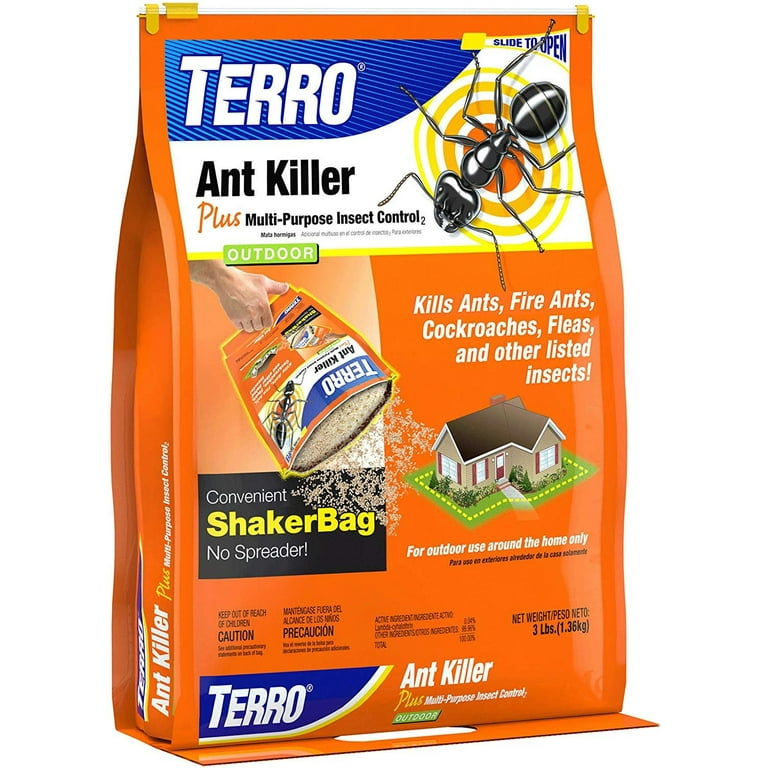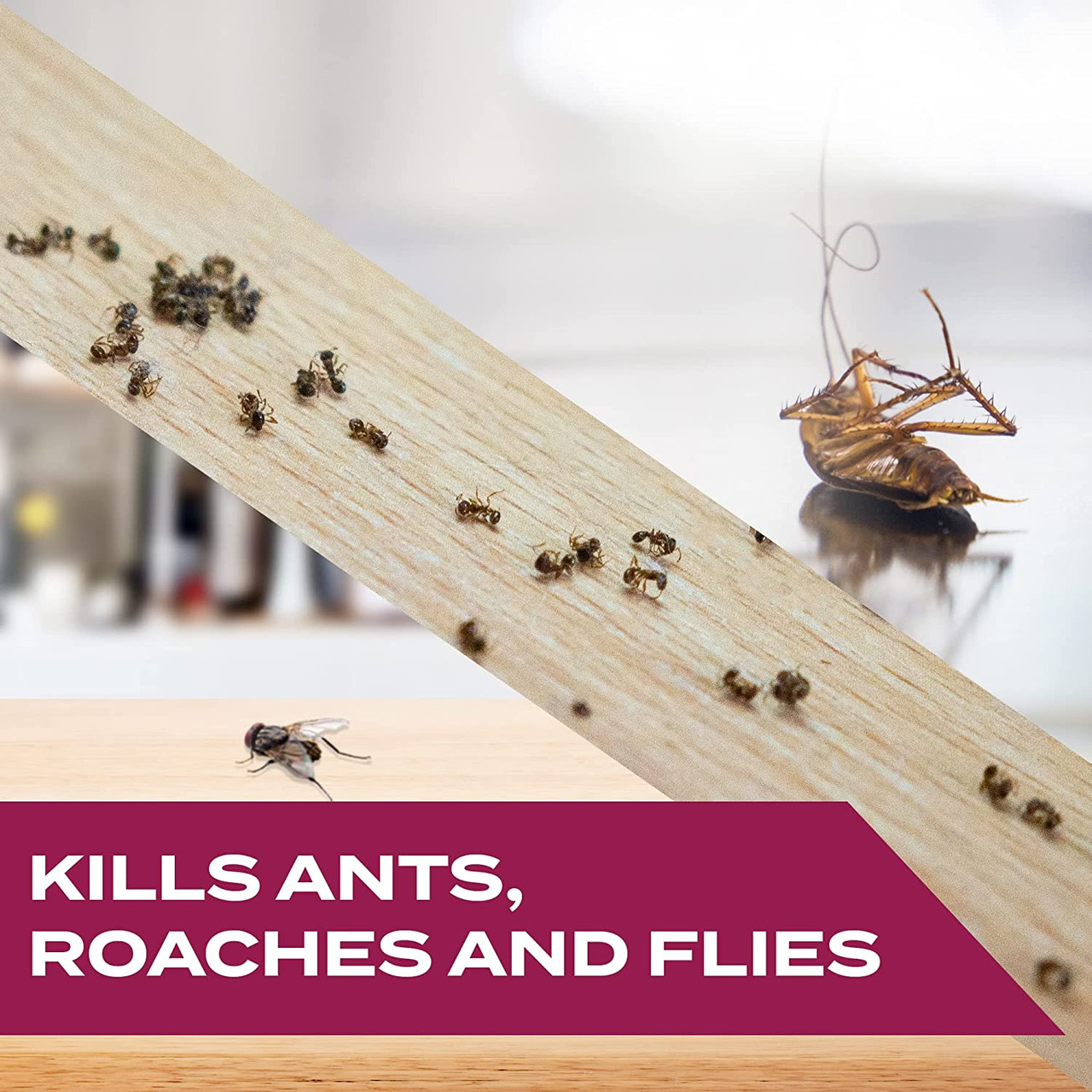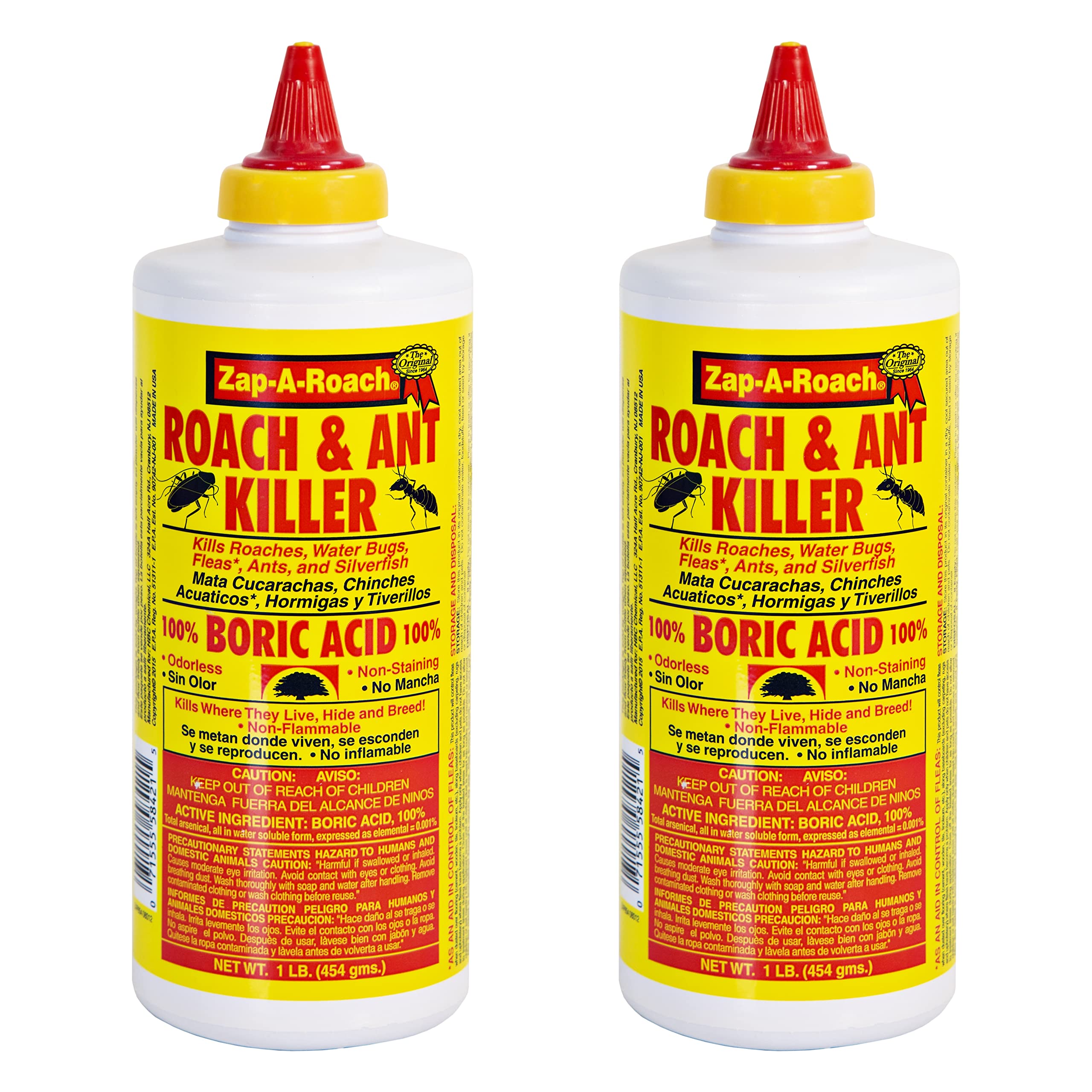Ant killer can be effective against roaches, but efficacy varies by product. Some formulas target only ants, while others may also impact roaches.
Seeking solutions for pest invasions is a common challenge for homeowners and renters alike. Ant killers and roach pesticides often contain similar active ingredients because both ants and roaches belong to the insect class. However, the formulation of ant killers might be specific to the biology and behavior of ants, which may not align with that of roaches.
Nevertheless, there are products marketed for broad-spectrum usage, capable of tackling a variety of crawling pests. Ensuring that your living space is pest-free is critical not just for comfort, but also for health and hygiene. Choosing the right pest control method requires understanding the pests you’re dealing with and selecting a product formulated to address those specific challenges. Remember to always read labels carefully and follow the instructions to achieve the best results in your pest management efforts.
Introduction To Ant Killers And Roach Infestations
Picture this: tiny soldiers marching in a line, on a mission for crumbs. Ants. Next, imagine resilient invaders, scurrying at the flick of a light. Roaches. These unwelcome guests often send homeowners searching for a quick fix, but will the same killer spell the end for both?
Common Ingredients In Ant Killers
Ant killers lure these insects with promises of food. They often contain powerful substances to eradicate ant colonies silently yet effectively. Let’s peek at what’s inside these formulas:
- Borax: A natural mineral that dehydrates ants.
- Fipronil: Disrupts the ant’s nervous system.
- Hydramethylnon: A slow-action poison, ensuring the spread to the colony.
- Indoxacarb: Converts to its toxic form inside the ant.
Roaches: A Persistent Pest
Roaches, on the other hand, survive in the toughest conditions. They need a different approach. These pests require solutions designed for their unique biology. Small doses may not do the trick. Cockroaches are fighters and may need a stronger hit.
| Roach Challenge | Reason |
|---|---|
| Adaptability | Can evolve fast to resist poisons. |
| Reproduction Rate | Roaches multiply quickly. |
| Survival Skills | Eat almost anything, even glue. |

Credit: www.amazon.com
Active Chemicals In Ant Killers
When pests invade your home, reaching for an ant killer might seem like a quick fix. But will it work on other pests like roaches? Understanding the active chemicals in ant killers helps determine their effectiveness against roaches.
Boric Acid And Its Effects
Boric acid is a common ingredient in ant killing products. Its properties allow it to be both attractive to pests and deadly when ingested.
- Boric acid affects an insect’s stomach and metabolism.
- It causes dehydration and affects the nervous system.
- While it’s often used against ants, roaches can fall prey to boric acid as well.
Hydramethylnon And Cockroach Control
Another powerful ingredient found in ant killers is hydramethylnon.
This chemical disrupts the energy production in insects, leading to:
- Lethargy and inactivity.
- Gradual death, usually within 24 to 72 hours.
- Effectiveness against cockroaches when they ingest or come into contact with it.
Fipronil And Its Cross-pest Efficacy
Fipronil is a broad-spectrum insecticide.
| Feature | Impact on Pests |
|---|---|
| Targets the nervous system | Causes hyperexcitation leading to death |
| Long-lasting residue | Ensures continuous control |
| Low dose effectiveness | Safe for use around pets and humans |
Its resilient nature makes fipronil ideal for both ants and cockroach extermination.
Comparing Ants And Roaches
Exploring the Battlefield: Ants vs. Roaches. When it comes to household pests, two tiny titans dominate the discussion: ants and roaches. These insects invade spaces for similar reasons, yet they are unique creatures with distinct characteristics. Will the substances designed to banish ants work on their cockroach cousins? Understanding the differences between them is crucial in this tiny war at your doorstep. Let’s dive into their world and compare.
Biological Differences
Ants and roaches are more different than you might think. Ants are of the Formicidae family, with a narrow waist, bent antennae, and often a stinger. Roaches are from the Blattodea order, sporting a broad, flat body, spiny legs, and straight antennae. Look beneath the surface, and their internal systems differ too. Such variance potentially impacts how they react to insecticides.
Behavioral Variances
Where ants are often seen as the ultimate team players, roaches can be more solitary. Ants work together, following trails and living in complex colonies. Roaches, on the other hand, are experts in stealth, hiding in dark corners and avoiding the light. Their survival tactics differ as well. Roaches can survive on a diverse array of resources, while ants have more specific diets. This could mean that what spells an end for ants may not hold the same fate for roaches.
| Aspect | Ants | Roaches |
|---|---|---|
| Body Shape | Narrow waist | Broad, flat |
| Antennae | Bent | Straight |
| Colony Behavior | Highly social | Often solitary |
| Dietary Needs | More specific | Very diverse |
Cross-effectiveness Of Pest Control Products
When facing a pest invasion, reaching for the nearest insecticide seems like a quick fix. Yet, understanding the cross-effectiveness of pest control products is essential. This insight helps in determining whether an ant killer can also be a warrior in your battle against roaches.
Targeted Vs. Broad-spectrum Insecticides
Insecticides fall into two categories: targeted and broad-spectrum. Targeted insecticides are like skilled snipers, effectively taking out specific pests. In contrast, broad-spectrum insecticides act as powerful grenades, eliminating a wide range of insects. It is important to know which type your ant killer is before using it against roaches.
- Targeted Ant Killers: Made specifically for ants, may not affect roaches
- Broad-Spectrum Insecticides: Can kill multiple insect types, including ants and roaches
Pros And Cons Of Using Ant Killer For Roaches
While the temptation exists to use an ant killer on roaches, weighing the pros and cons is key.
| Pros | Cons |
|---|---|
|
|
Pros:
- Ease of Use: Ant killers are readily available in stores.
- Immediate Action: If the ant killer is broad-spectrum, it might kill some roaches on contact.
- Reduces some of the roach population quickly.
- Cost-Efficiency: Using what you already have saves money initially.
Cons:
- Specificity: Ant killers are formulated for ants, not roaches.
- Resistance: Roaches may not be affected and can even grow resistant.
- Secondary Issues: Harmful to non-targeted beneficial insects and pets.
- Temporary Fix: May not address the roach infestation root cause.
Safety Concerns When Using Ant Killers On Roaches
Homeowners often reach for ant killer in a pinch to tackle a roach problem. Understanding the safety risks is vital. Ant killers may not be the best choice for eradicating roaches due to potential health risks and environmental concerns.
Toxicity To Humans And Pets
Ant killers contain chemicals unsafe for humans and pets. Since roaches and ants have different biology, ant killers designed for ants might not kill roaches effectively. Using them inappropriately increases exposure to these toxins.
- Ingestion risk from misplaced bait stations.
- Possible skin irritation upon contact.
- Inhalation can lead to respiratory issues.
Always read product labels. Place baits out of reach. Wear protective gear when applying sprays or powders. Seek medical attention if exposure occurs.
Environmental Impact
Chemicals from ant killers can seep into ecosystems. They pose a threat to non-target species and beneficial insects, disturbing the natural balance. Overuse leads to water contamination, affecting aquatic life and water quality.
| Chemical | Effect on Environment |
|---|---|
| Fipronil | Dangerous to bees and fish |
| Boric Acid | Toxic to plants at high levels |
| Imidacloprid | Can harm beneficial insects |
Choose eco-friendly, targeted roach treatments to avoid environmental risks. Consult with pest control experts for effective and safe methods.

Credit: www.walmart.com
Alternative Methods For Roach Control
Seeking effective strategies to combat roaches without resorting to ant killer? Explore alternative methods that guarantee a roach-free environment.
Natural And Home Remedies
Natural solutions offer a safer way to address roach problems. Here’s a list of readily available items you can use:
- Baking Soda and Sugar: Mix equal parts to lure and eliminate roaches.
- Boric Acid: Sprinkle in dark corners for a potent, natural poison.
- Diatomaceous Earth: A non-toxic powder that dehydrates roaches.
- Essential Oils: Use peppermint or citrus oil for repelling roaches.
- Soap and Water: A spray bottle mixture to suffocate roaches on contact.
Regular cleaning and maintenance are crucial. Wipe surfaces and vacuum often to prevent roach infestations.
Professional Extermination Options
For persistent roach problems, professional help ensures thorough eradication.
| Service | Description | Benefits |
|---|---|---|
| Standard Treatment | Use of commercial-grade insecticides. | Fast-acting, long-term control. |
| Gel Baiting | Strategic placement of gel-based poisons. | Targets roach colonies directly. |
| Fumigation | Whole-home gas treatment. | Comprehensive solution for severe cases. |
Selecting a credible pest control service is vital for effective and safe extermination.
Preventing Future Infestations
After successfully dealing with an unwelcome insect problem, ensuring the pests don’t return is critical. Here, under our “Preventing Future Infestations” section, discover practical steps to keep both ants and roaches at bay. By following these proactive measures, your home can remain a no-bug zone!
Regular Cleaning And Maintenance
- Dispose of garbage regularly and use bins with tight lids.
- Clean spills and crumbs immediately to avoid attracting pests.
- Vacuum often, especially in corners and under furniture.
- Regularly check under sinks for moisture – a pest magnet.
- Store food in sealed containers to keep the scent from spreading.
Sealing Entry Points
| Location | How-To Seal |
|---|---|
| Doors | Install door sweeps and repair damaged seals. |
| Windows | Use weather stripping and fix broken screens. |
| Walls | Fill cracks and crevices with caulk. |
| Pipes | Seal gaps around plumbing with foam or escutcheon rings. |
Insect entry points are not always obvious. Conduct routine checks and seal gaps to stop pests in their tracks. Small efforts can have a huge impact on maintaining a pest-free environment.

Credit: stemforbugs.com
Final Verdict On Using Ant Killer For Roaches
People often wonder if ant killer can take on a bigger pest: roaches. It’s crucial to assess if what wipes out one pest can affect another.
Effectiveness Assessment
Ant killers target ants’ biology and behavior, which differ from that of roaches. But some active ingredients can ward off roaches, depending on the ant killer’s formulation.
- Borax-based ant killers: May also impact roaches.
- Ingredient-specific action: Certain chemicals affect both pests.
Overall, ant killers are not the most potent solution for roach infestations.
Best Practices For Home Pest Control
For thorough pest eradication, rely on tailored solutions.
- Identify the pest accurately.
- Use pest-specific treatments.
- Maintain cleanliness to discourage infestations.
Ensuring you target the right pest guarantees better control over the unwanted visitors in your home.
Frequently Asked Questions On Will Ant Killer Kill Roaches
Can Ant Killer Effectively Eliminate Roaches?
Ant killers are formulated specifically for ants and may not be as effective against roaches. Roaches require different active ingredients or formulations to be eradicated. However, some broad-spectrum insecticides can target both ants and roaches.
Do Roaches Respond To Ant Baits And Poisons?
Roaches typically do not respond to ant baits and poisons because these products are designed to attract ants specifically. The bait’s composition might not be appealing or toxic to roaches, which have different feeding habits and preferences.
What Ingredients Should I Look For In A Roach Killer?
For a roach killer, look for active ingredients such as boric acid, fipronil, hydramethylnon, or imidacloprid. These chemicals are known to be effective at targeting and eliminating roach populations.
Are There Multi-insect Killers For Ants And Roaches?
Yes, there are multi-insect killers that are formulated to target both ants and roaches. These products will list the types of insects they are effective against on their labeling. Always check labels carefully to ensure the product meets your needs.
Conclusion
To wrap things up, ant killer can indeed be effective against roaches, albeit not consistently so. Opting for specialized roach treatments is typically the safer bet for a thorough infestation resolution. Your best course of action is to assess your situation and choose a solution tailored to your pest problem.
Remember to follow safety protocols with any pesticide use.

I’m MD Tanvir, and I bring years of expertise gained from working closely with pest control companies to the forefront. My journey in the industry has inspired me to launch Bug Battler, a platform aimed at equipping people with the know-how to combat pests autonomously. Through Bug Battler, I aim to empower individuals with practical insights to tackle pest infestations effectively.

